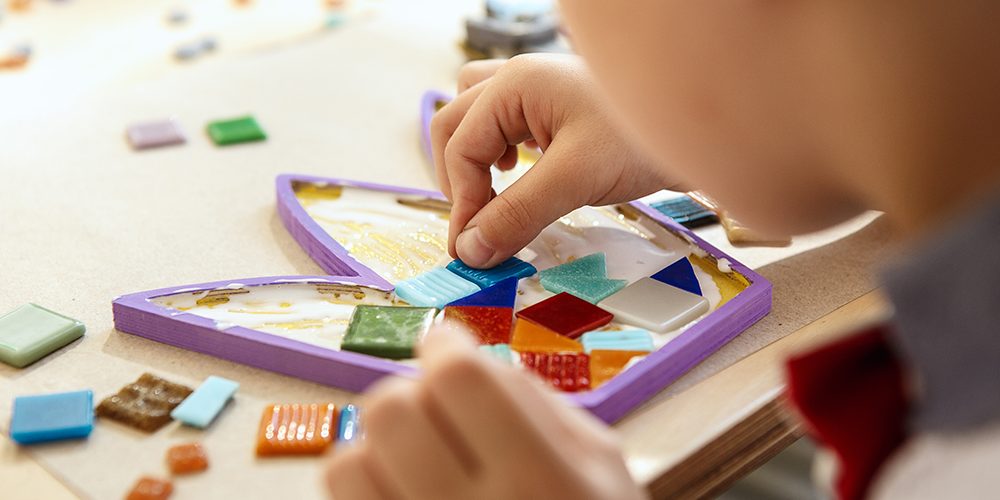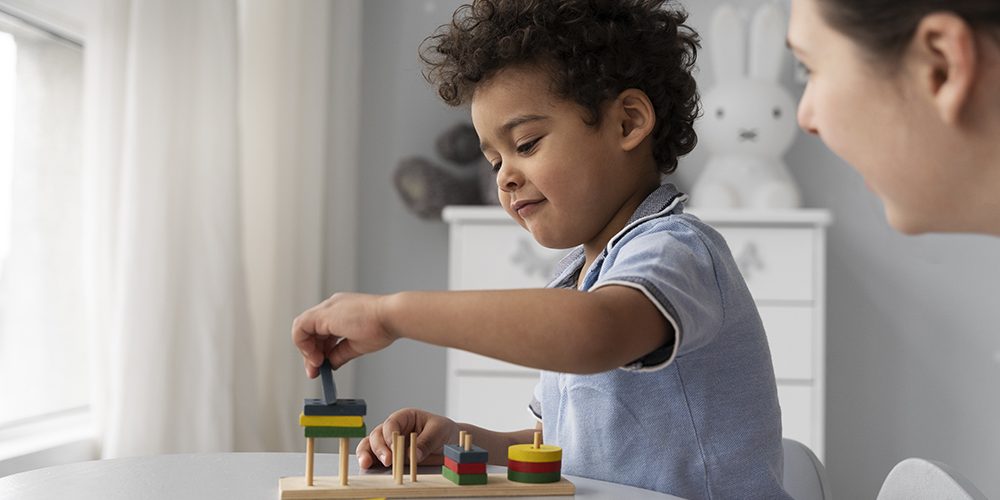
Parents, early childhood education is super important. It helps kids now and in the future. Play-based learning is a popular way to teach young children. Some think it’s just fun, but it’s more than that.
Why Play Based Learning is Important:
Helps Thinking: Playing makes kids smarter. They solve problems, think hard, and make decisions while having fun. Games like blocks and puzzles also help them with math and understanding shapes and sizes. Board games make them plan and make smart choices.
Talking Skills: Playing with friends helps kids talk better. They learn to communicate and use more words. When they make up stories and pretend, it makes them creative and good at talking. Singing and rhyming helps with reading and writing.
Being Friendly: Play helps kids be nice and make friends. They learn to work together and talk to each other. Play teaches them how to handle feelings and solve problems. It’s like practice for the real world.
Healthy Body: Playing is good for the body, too. Running, jumping, and climbing make them strong. Playing with small things, like toys, helps with hand-eye coordination. It also makes them like moving and being active.
The Benefits of Play Based Learning
Imagine a child playing with building blocks. They’re learning about sizes, forms, and balance in addition to simply stacking them. While students work out how to create a stable framework, they are also honing their problem-solving abilities. Playing with blocks is a simple yet effective learning exercise.
Cognitive Benefit
Play-based learning helps kids grow their brains. It sharpens their intellect, piques their curiosity, and helps them solve problems. It challenges their curiosity, honed their brains, and assisted them in problem solving. Children can learn to think critically and make decisions in an engaging way by engaging in play-based learning.
For instance, children who play with puzzles and building blocks are not just having fun; they are also learning about numbers and spatial awareness. Sorting objects by size, color, and shape helps them develop classification skills. Even playing board games encourages kids to plan ahead, think, and make smart decisions.
Language Development
Playing with other kids is a fantastic method to develop your collaboration and communication abilities. Children use language to communicate their ideas and thoughts when they play together. This enhances their communication skills and expands their vocabulary.
In a play-based learning environment, children use various language structures when they create stories and engage in pretend play. They have conversations, use storytelling techniques, and describe things vividly. This fosters creativity and enhances their verbal abilities. Additionally, activities like singing and rhyming improve phonological awareness, which is crucial for reading and writing. Play-based learning sets a solid foundation for preschool preparation.
Social and Emotional Benefits
Not only does play foster cognitive development, but it also promotes positive social and emotional development. Playing together teaches children great social skills and valuable self-discovery.
Playing cooperatively fosters cooperation, communication, and teamwork. To get along in the outside world, one needs to have these fundamental social abilities. In addition, play offers a secure environment in which children can explore and learn how to communicate and control their feelings. This aids in the development of their empathy, resilience, and conflict-resolution abilities. Early education relies heavily on play because it is through play that children gain these crucial social and emotional tools.
Physical Benefits
Play-based learning isn’t just about the mind; it’s great for the body too. Active play, like running, jumping, and climbing, helps children grow physically stronger. It improves their balance, coordination, and overall strength.
Even when kids play with small objects, like toys, they are enhancing their hand-eye coordination and fine motor skills. Activities such as crafts and arts and crafts further refine these motor abilities. Play areas instill a love for physical activity, setting the stage for a lifetime of healthy living.
Benefits for Parents
Parents can gain from play-based learning just as much as their children do. Play-based activities help you and your child develop a closer relationship and make enduring memories. Playing with them enables you to actively participate in their educational process.
You also get to see directly how your child develops, enjoying their successes and supporting them as they overcome obstacles. Play-based learning may be a joyful and gratifying shared experience that strengthens your bond with your child.
Implementing Play-Based Learning as Early Education

Now that we understand the importance of play-based learning, let’s explore some practical ways to incorporate it into your child’s daily life, whether you’re a parent, caregiver, or educator:
- Provide Open-Ended Toys and Materials: Instead of opting for toys with specific instructions or limited functions, choose open-ended materials that spark imagination and encourage exploration. Think blocks, building sets, playdough, art supplies, dress-up clothes, and natural materials like sand, water, and leaves. These open-ended resources allow children to take the lead in their play, creating their own worlds, scenarios, and stories.
- Join the Play: Don’t just watch; join in! Actively participate in your child’s play, engaging their imagination and fostering their creativity. This could involve:
- Building elaborate structures with blocks.
- Playing pretend and taking on roles in their imaginary world.
- Creating stories together, adding your own twists and turns.
- Singing songs, dancing, and engaging in musical activities.
- Participating in outdoor games and activities
Creating a playful environment and fostering child-led exploration through these simple strategies can unlock a world of learning and discovery for your child. Remember, play is not just a pastime; it’s a fundamental right and an essential element of healthy development. So, embrace the mess, join the play, and watch your child blossom through the magic of playful learning!
Conclusion
In conclusion, play-based learning acts as a transformative force in early childhood education. By acknowledging the inherent power of play, we can cultivate environments that ignite children’s curiosity, nurture their creativity, and empower them to blossom into well-rounded individuals. Through playful exploration, children not only unlock their cognitive potential and develop social and emotional intelligence, but they also cultivate a love for learning that extends far beyond the classroom. Through play, children develop the critical abilities required to thrive in this changing environment and to embrace resilience, adaptability, and a growth mindset. They create deep bonds with one another, the world around them, and themselves as they set off on this lighthearted adventure. Through play, children can explore their individual skills, develop self-expression, and forge a solid sense of identity. Play serves as a catalyst for self-discovery.
Raising the next generation of people who are emotionally intelligent, creatively expressive, and acutely aware of their environment is all part of embracing the magic of play. It is not just about giving in to youthful frivolity. By giving kids the chance to explore in a playful way, we enable them to take charge of their own education and meet obstacles head-on, persevering and exploring new things. In light of play-based learning’s significant impact on kids’ lives and its long-lasting influence on creating a future in which learning is a joyous experience rather than a strict requirement, let’s continue to support it.
